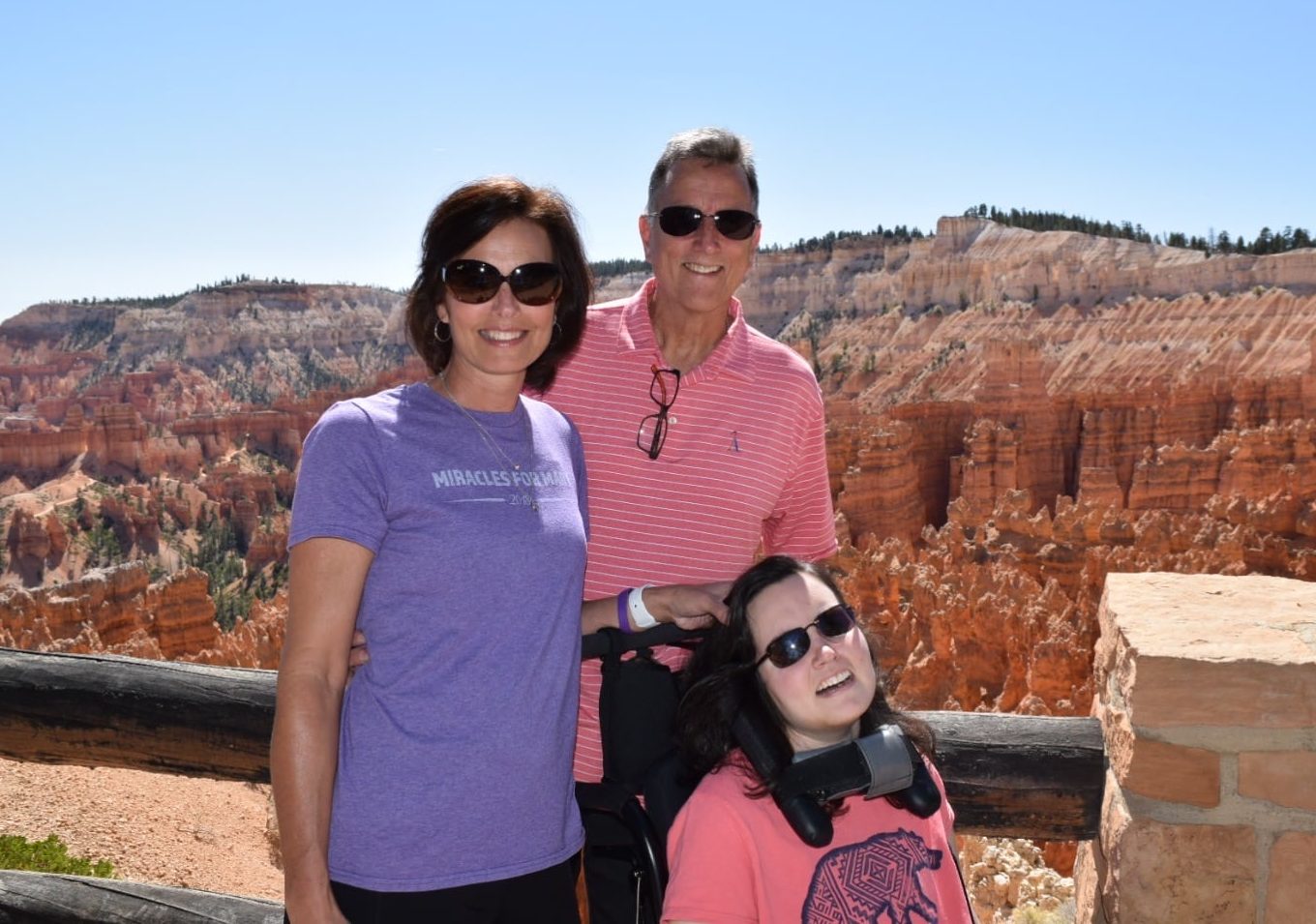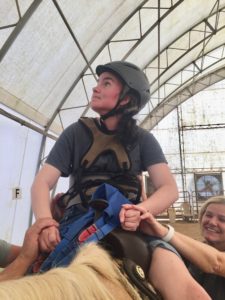View Larger Image

Jim, Patti and Mary Drake at the Grand Canyon during their 14-day road trip.
Image by The Drake family
Brain Injury Survivors’ Conference Highlights Triumph Through Trauma
| Members of the Drake family have shared their experiences for the past 11 years in hopes of helping others, and they continued to uplift and encourage attendees during the Brain Injury Survivors’ Conference hosted by the University of Arkansas for Medical Sciences’ (UAMS) Trauma Rehabilitation Resources Program.
Part of the Institute for Digital Health & Innovation, the Trauma Rehabilitation Resources Program (TRRP) held the virtual conference on March 31 for traumatic brain injury survivors, families and caregivers. Participants learned new rehabilitation skills and information through engaging activities, including music therapy, art, meditation and chair yoga, and they had the opportunity to speak with specialists and join supportive discussions during the afternoon event, where they also heard the Drake family’s story.
In November 2009, Jim and Patti Drake’s then-16-year-old daughter, Mary, suffered a traumatic brain injury from a head-on collision with a pickup truck while driving home from Pine Bluff after visiting her grandparents. She was airlifted to Arkansas Children’s, where her family also discovered that she had broken every limb in her body.
Drake survived and spent eight months recovering in the hospital from multiple surgeries, an infection and brain swelling, but while she fought, she never spent one night alone in the hospital. Family and friends took shifts staying each night until the teen went home with her parents in July 2010.
“Our transition with Mary was much easier thanks to the love and care of friends and family. Our desire is to help others in the same way, and we feel [that we can] help in three ways: emotionally, spiritually and financially,” said Patti Drake. “Just having someone to talk to can make a difference. Someone who can empathize with your situation because they’ve been there.”
While Mary Drake, now 28, is quadriplegic, lives with her parents and has faced setbacks, her life has also been highlighted with milestones. She graduated from high school, has ridden horses, served as a bridesmaid in her two brothers’ weddings and even took a 14-day road trip out West.

Mary Drake riding a horse during therapy.Image courtesy of the Drake family
The Drake family credits its faith not just for getting them through the accident, but for helping them find joy in the adversity. Through their foundation, Miracles for Mary, the Drake family has raised money since 2013 to aid other survivors and families by making homes handicap accessible, customizing at-home therapy tools and providing scholarships to make alternative treatments affordable.
“Recovering from a brain injury is like a marathon, not a sprint,” Jim Drake said as he shared advice with conference participants. “There are going to be many obstacles, but you’ll find lots of support and encouragement along the way.”
One of the newest additions to this year’s conference was a support group session, arranged for participants to demonstrate what it’s like to attend online group meetings with fellow survivors, families and caregivers.
“We want to help build community,” said Kristen Alexander, MPH, a health educator with TRRP. “Living with a brain injury can be so isolating, so we want them to see that we have a friendly space where they aren’t alone, can be themselves and feel accepted. Several participants said they would definitely be coming to future meetings.”
TRRP is the lead brain injury program in Arkansas and houses the state traumatic brain injury registry, recording all moderate-to-severe brain injuries. From the registry, the program connects survivors and families with vital resources.
Additionally, TRRP conducts several educational workshops throughout the state and facilitates virtual visits for brain and spinal cord injury patients to increase accessibility to UAMS physical medicine and rehabilitation specialists Rani Lindberg, M.D., and Lindsay Mohney, D.O. Both physicians spoke during the conference’s medical panel, giving participants the chance to ask questions about their injuries.
Shortly after, Lindberg explained that she noticed how isolation, caused by COVID-19, significantly affected the recovery of brain injury patients.
“Without the additional challenge and stimulation from their community interactions, many of my patients have battled limited access or loss of access to their coping mechanisms and the ability to practice specific skills to address impairments,” Lindberg said.
She also offered some tips for conference attendees.
“Recovery is a test in patience and perseverance. Take it day-by-day and set achievable goals. Sometimes, you may have to take a step back, rest, recharge and try again later,” she said. “Lastly, accept help from others. It takes a team to recover, and you are not alone.”
For more information about TRRP, visit http://www.atrp.ar.gov or contact the 24-hour TRIUMPH call center at 1-855-767-6983.